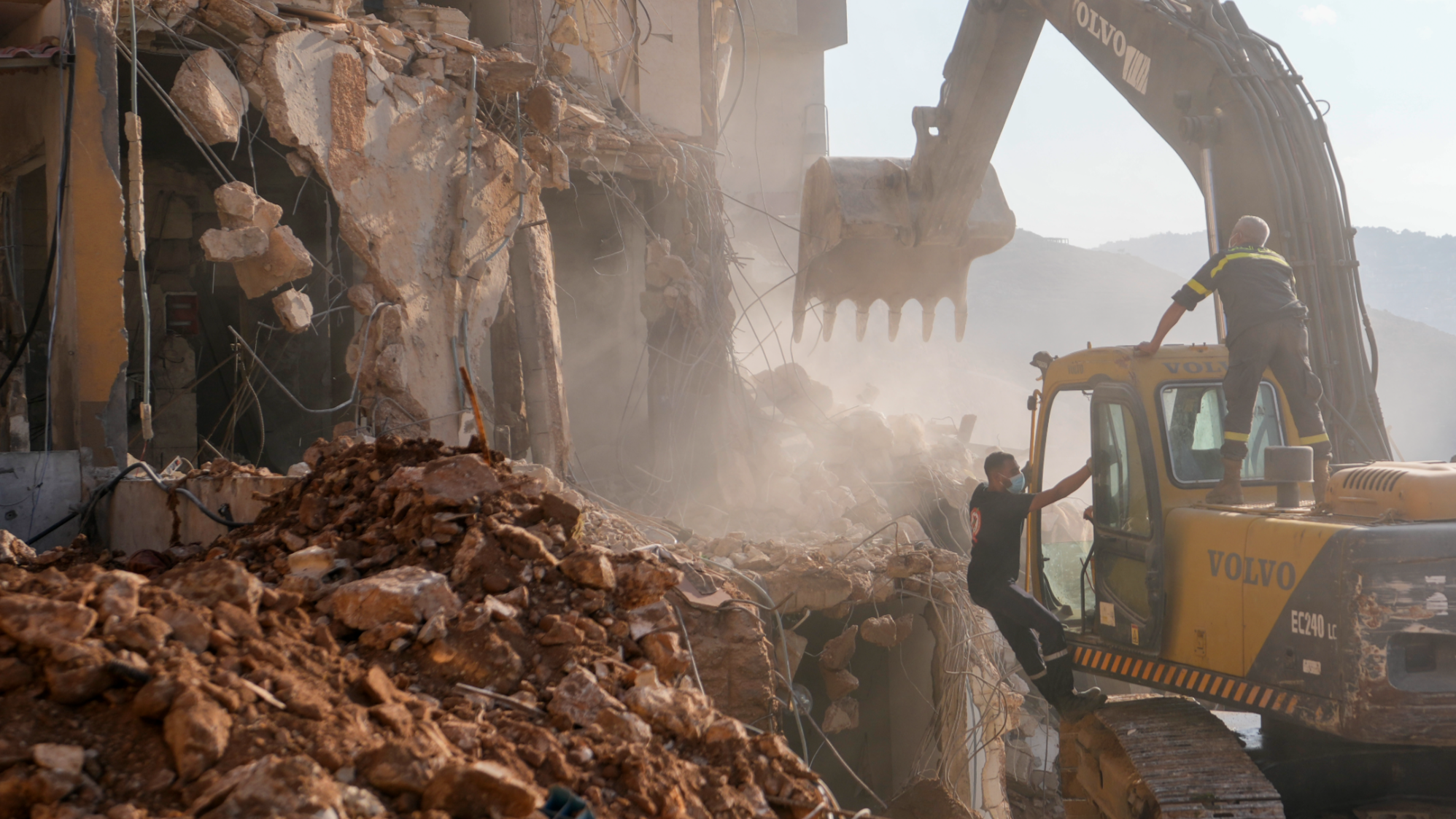
Lebanon’s Ministry of Foreign Affairs and Emigrants announced on Nov 6 that it has submitted, through its permanent mission to the United Nations in New York, a new complaint to the UN Security Council over Israeli attacks between Oct 25 and Nov 1.
According to a report by Lebanon’s National News Agency, the Foreign Ministry condemned Israel’s continuous aggression against Lebanon, the violation of its sovereignty, ground infiltration of its territory, the “perpetuation of more massacres”, and the “persistent and systematic destruction of the border villages”.
The complaint also highlighted that the “systematic destruction” indicates the Israeli army’s endeavor to “turn the border line into an uninhabited buffer zone” and the continuous targeting of crowded residential buildings as well as places of worship and shrines and putting archeological sites in Tyre and Baalbek at risk.
READ MORE: Ceasefire hopes fade as Israel bombards Gaza, Lebanon
“…Lebanon renewed calls to condemn Israel's hostile acts and take measures to halt them, in addition to holding it fully responsible for the massive losses of lives and properties, and demanding its full and unconditional withdrawal of the occupied Lebanese lands and the full implementation of UN Resolution 1701," it concluded. The UN Security Council adopted Resolution 1701 in 2006 which is aimed at keeping peace on the border between Lebanon and Israel.
The new complaint comes just after the International Federation of Red Cross and Red Crescent Societies (IFRC) on Nov 5 launched a federation-wide Emergency Appeal for $115 million amid an escalation of hostilities that has so far seen more than 3,000 deaths and more than 13,000 injuries.
In its press release, the IFRC said it aims to provide immediate and long-term relief to around 600,000 people affected by the conflict there and to support the critical ambulance services of the Lebanese Red Cross, whose volunteers have been on high alert since October last year.
“The severe escalation of hostilities has led to widespread destruction and mass displacement in Lebanon, exacerbating an already dire socio-economic situation, and necessitating a new appeal to address the rapidly evolving humanitarian situation there more effectively,” the press release read.
With winter approaching, many people are now homeless or crammed in living conditions without proper heating.
"We are seeing a huge need for basic goods to help the hundreds of thousands of people who have fled their homes. Many are now staying with family members or living in temporary shelters, such as schools," said Lotte Ruppert, IFRC’s operations manager in Beirut.
"Going back to their houses is not an option at this moment, as the conflict areas are still very dangerous. On top of that, we are concerned for the safety of all health workers, including LRC volunteers, especially in the south of Lebanon.”
On a visit to Beirut to launch the appeal and meet with the LRC, Jagan Chapagain, IFRC’s secretary general, said the humanitarian needs in Lebanon “are growing by the day” and that the funds raised in the appeal would support the Lebanese Red Cross’ life-saving programs.
In parallel, the press release concluded, the Middle East Complex Emergency Crisis Appeal will remain active until December 2025, covering the Red Cross and Red Crescent response across the region. From November 2024, contributions to support the response efforts in Lebanon “should be directed through this new Lebanon Complex Emergency Appeal”.
Meanwhile, Lebanon’s caretaker prime minister, Najib Mikati, received an invitation on Nov 5 from King Salman bin Abdulaziz to participate in the extraordinary joint Arab-Islamic summit scheduled for Nov 11 in the Saudi capital of Riyadh, Arab News reported.
The summit will address Israeli aggression on the Palestinian people and Lebanese territories, coinciding with an increase in Israeli drone strikes in Beirut, southern Lebanon and Bekaa, resulting in further civilian casualties.
Mikati received the invitation from Waleed Bukhari, the Saudi ambassador to Lebanon.
Nagapushpa Devendra, a West Asia analyst and research scholar at the University of Erfurt in Germany, said while the complaint reflects the tense and fragile situation along the Lebanon-Israel border, it is noteworthy that intermittent escalations have been going on for years.
She noted that Lebanon has a history of filing complaints against Israel for years. Beirut’s attempt to internationalize this cross-border issue often stalls “due to geopolitical factors and differing positions among the member countries of the Security Council".
READ MORE: World powers raise $1b for Lebanon, but ceasefire elusive
Devendra said there "is still time for the international community to not let further escalation of the war since Lebanon is still recovering from the economic and political crisis. It is also trying to make efforts to rebuild the infrastructure destroyed by the Israeli troops”.
"The threat of possible Israeli infiltration into Lebanon carries a serious repercussion for Hezbollah as well as for Tel Aviv – since a two-form war would restrain its military capacity," she added.
"The West needs to pressure (Israeli Prime Minister Benjamin) Netanyahu to resolve the conflict via political settlement and negotiations or face the consequences of another conflict – including civilian casualties and immigration crisis, " said Devendra.
Contact the writer at jan@chinadailyapac.com


